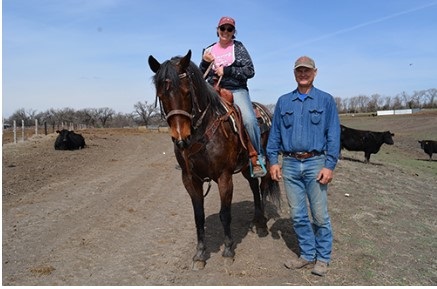WASHINGTON, D.C. – Unintended consequences. That’s what will happen if a cattle market reform compromise reached last week is passed by the U.S. Senate Ag Committee, according to a letter sent by R-CALF USA.
The organization is asking the committee to reject S.3229, the “Cattle Market Price Discovery and Transparency Bill.” It would establish regional mandatory minimum thresholds for negotiated cash and grid trades based on each region’s 18-month average negotiated cash  trade volumes. Senators Deb Fischer (R-Neb.), Chuck Grassley (R-Iowa), Jon Tester (D-Mont.), and Ron Wyden (D-Ore.) jointly announced the compromise. American Farm Bureau, U.S. Cattlemen’s Association, and National Farmers Union have endorsed the bill, while the National Cattlemen’s Beef Association’s position is lukewarm.
trade volumes. Senators Deb Fischer (R-Neb.), Chuck Grassley (R-Iowa), Jon Tester (D-Mont.), and Ron Wyden (D-Ore.) jointly announced the compromise. American Farm Bureau, U.S. Cattlemen’s Association, and National Farmers Union have endorsed the bill, while the National Cattlemen’s Beef Association’s position is lukewarm.
But R-CALF USA is asking the Senate Ag Committee to take no action on S.3229, “pending the conclusion of our class action antitrust case and/or the conclusion of the U.S. Department of Justice’s investigation into the nation’s largest packers. Those outcomes would potentially cause or have the effect of a congressional sanctioning of the current proportion of cash versus non-cash purchases. Unfortunately, this is precisely the unintended effect that S.3229 would have,” the letter states.
Instead, R-CALF USA has partnered with Senator Cory Booker (D-N.J.) and Representative Ro Khanna (D-Calif) on another new bill, the “Protecting America’s Meatpacking Workers Act of 2021.”
Bullard calls it the “silver bullet” that is needed to make comprehensive changes in all aspects of the market, framing it as the 2021 version of the 100-year-old Packers and Stockyard’s Act. “It addresses the single, most dangerous threat to the competitiveness of the industry and that’s the use of these unpriced contacts that give the packers the ability to leverage down domestic cattle prices,” he told Brownfield Ag News.
The new Act would prohibit formula contracts that require cattle sellers to commit cattle to a packer without knowing the base price the packers would use for determining the value of their cattle. The Act accomplishes this by requiring any contract that requires delivery of cattle more than 7 days before slaughter to contain a base price that can be equated to a fixed dollar amount.
The new Act would also:
Ban the nation’s largest packers from owning and feeding cattle more than 7 days before slaughter.
- Requires each plant owned by the largest packers to purchase at least 50% of their cattle needs from the competitive cash market each day and to slaughter those cattle within 7 days.
- Prohibits any conduct by the packers that adversely affects competition regardless of any business justification claimed by the packers.
- Clarifies that a showing of harm to competition is not necessary for producers to protect themselves from anticompetitive conduct by the packers.
- Restores mandatory country of origin labeling (MCOOL) for beef and pork and adds dairy products.
- Empowers producers to defend the competitiveness of their industry by authorizing the recovery of attorney fees in successful cases filed under the Packers and Stockyards Act
R-CALF USA is encouraging cattle producers to support the new Act. “This is a preferred substitute for the spot market protection bill, S.3229,” says Bullard, adding, “which fails completely to offer any meaningful market structure reforms.”
The “Protecting America’s Meatpacking Workers Act of 2021” is expected to be formally introduced next week.
See more news related to cattle market reform here and here












